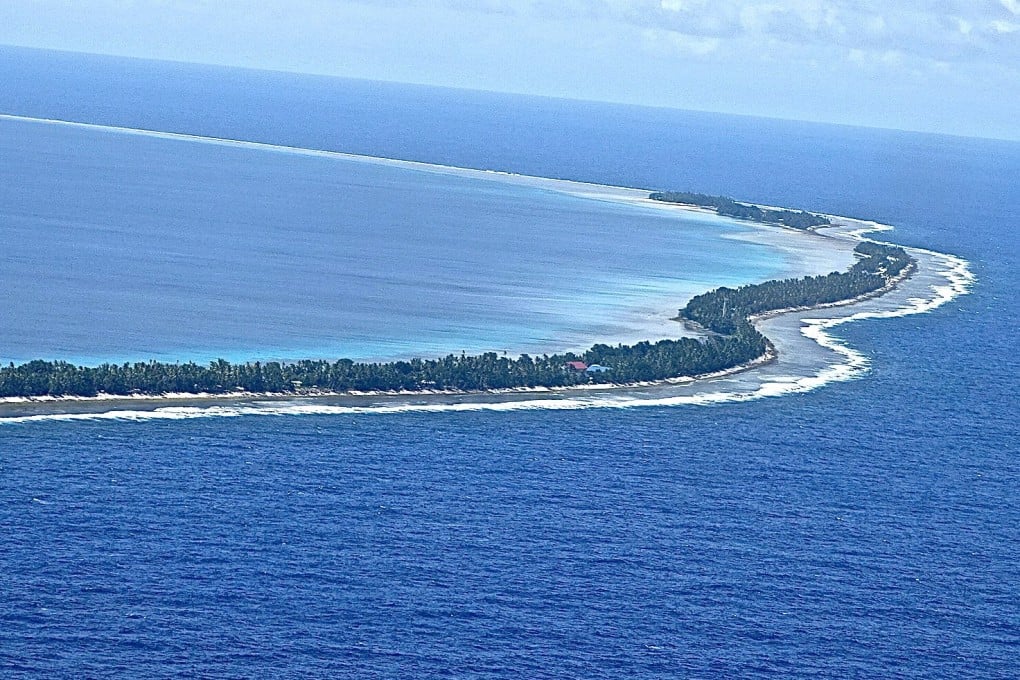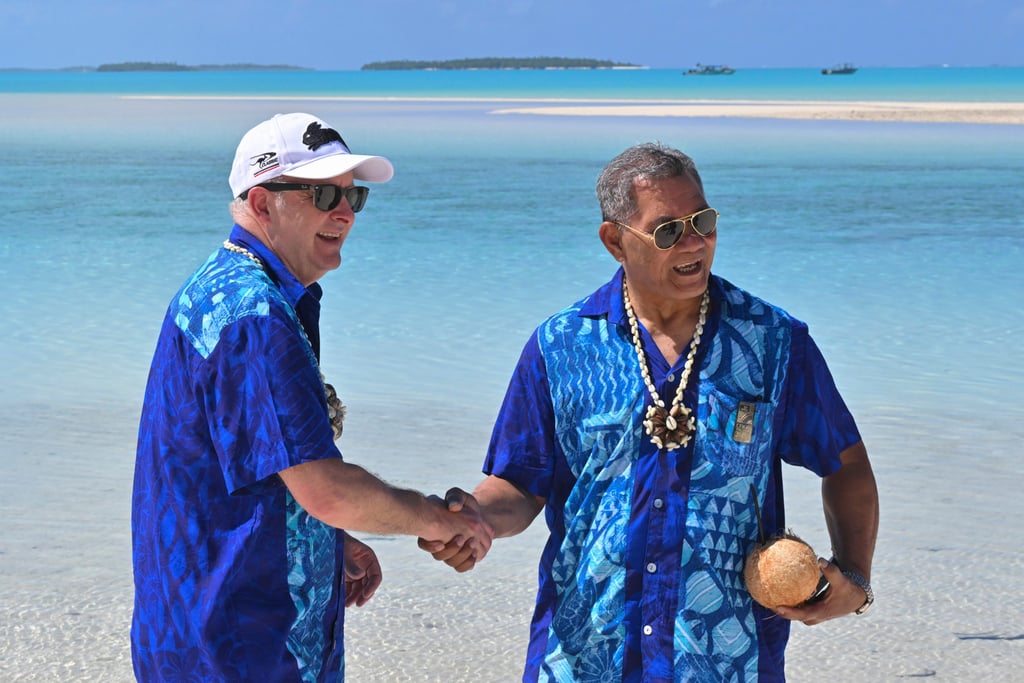Australia-Tuvalu treaty sparks migration fears, threat to sovereignty amid climate battle
- Australia’s agreement with Tuvalu may provide younger locals with a migration pathway but is seen by older islanders as an encroachment of sovereignty
- Tuvaluans say they were not consulted on the deal with Australia and urge young islanders to remain to help tackle climate change

After 30 years of debate, a climate change reparation fund was finally adopted on the first day of the Cop28 meeting in the United Arab Emirates on November 30.
It is designed to compensate vulnerable small nations and allow them to cope with the impacts of climate change – but a recent agreement between Australia and the small Pacific nation of Tuvalu provides a different and what some see as a worrying template.
Although the “Australia-Tuvalu Falepili Union” – which in the Tuvalu language means good neighbourliness, care and mutual respect – resonates with younger Tuvalu locals by providing them with a migration pathway, it is seen by older islanders as encroachment of sovereignty by a Western power.

Tuvalu is on the front lines of the battle against climate change. It is one of the remotest countries in the world, lying in the middle of the South Pacific Ocean, with great strategic importance to global powers. A nation of 13 atolls with a population of 11,200, Tuvalu has repeatedly called for greater action from major greenhouse-gas-emitting nations such as Australia to stop its islands from being drowned out within 30 to 40 years by rising sea levels.
Tuvalu is one of only four Pacific nations that have diplomatic relations with Taiwan, with critics saying Australia is using this vulnerability to hammer out a deal that has been described as a military pact disguised as a climate change response.
The deal, apparently struck in private between both sides, was announced by Australian Prime Minister Anthony Albanese and his Tuvalu counterpart Kausea Natano at the conclusion of the 52nd Pacific Islands Forum (PIF) summit in the Cook Islands on November 10, surprising other PIF members.
Natano described the agreement “as a beacon of hope [and] a milestone” to bring “regional stability, sustainability and prosperity”, while Albanese noted: “This is a groundbreaking agreement” where “Australia acknowledged that we are part of the Pacific family”.
